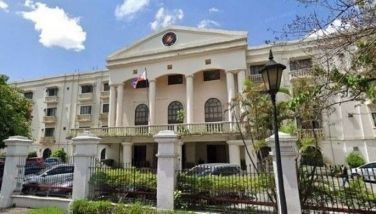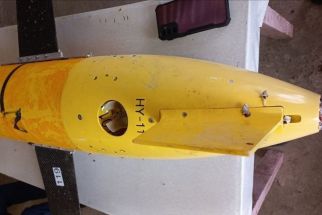‘Tropical’ uniforms for gov’t workers
February 7, 2007 | 12:00am
A law that calls for the use of tropical fabrics in the uniforms of public sector workers will finally be implemented, a sartorial move that the government said would save millions of dollars in textile imports and generate jobs for Filipinos.
Some 1.3 million government workers will start wearing uniforms made out of pineapple, abaca and banana fibers next year, the Department of Science and Technology (DOST) said yesterday.
Philippine Textile Research Institute director Carlos Tomboc said as soon as the local textile company meets the fiber quality prescribed by the PTRI this February, the production of uniforms would start by March this year.
President Arroyo in 2004 signed into law Republic Act 9242, "an act prescribing the use of Philippine tropical fabrics for uniforms of public officials and employees and for other purposes."
Tomboc said the textile should have a minimum five percent composition of pineapple, abaca or banana fibers.
He said the implementation of the law would help farmers by increasing their production of banana, abaca and pineapple in the country as well as providing more jobs for the Filipinos in the garment industry.
Tomboc said the use of tropical fabrics for uniforms would also help in minimizing methane emission which he said is one of the causes of global warming.
Under RA 9242, the PTRI is directed to provide tropical fabrics for the uniforms of the government employees.
Tomboc said many countries have expressed interest in the country’s fabrics.
He said the use of tropical fabrics in the uniforms of public employees would serve as a test of the quality of textile produced from local fiber, which could be soon exported to countries like China, South Korea and Japan.
Some 1.3 million government workers will start wearing uniforms made out of pineapple, abaca and banana fibers next year, the Department of Science and Technology (DOST) said yesterday.
Philippine Textile Research Institute director Carlos Tomboc said as soon as the local textile company meets the fiber quality prescribed by the PTRI this February, the production of uniforms would start by March this year.
President Arroyo in 2004 signed into law Republic Act 9242, "an act prescribing the use of Philippine tropical fabrics for uniforms of public officials and employees and for other purposes."
Tomboc said the textile should have a minimum five percent composition of pineapple, abaca or banana fibers.
He said the implementation of the law would help farmers by increasing their production of banana, abaca and pineapple in the country as well as providing more jobs for the Filipinos in the garment industry.
Tomboc said the use of tropical fabrics for uniforms would also help in minimizing methane emission which he said is one of the causes of global warming.
Under RA 9242, the PTRI is directed to provide tropical fabrics for the uniforms of the government employees.
Tomboc said many countries have expressed interest in the country’s fabrics.
He said the use of tropical fabrics in the uniforms of public employees would serve as a test of the quality of textile produced from local fiber, which could be soon exported to countries like China, South Korea and Japan.
BrandSpace Articles
<
>
- Latest
- Trending
Trending
Latest
Trending
Latest
Recommended






























